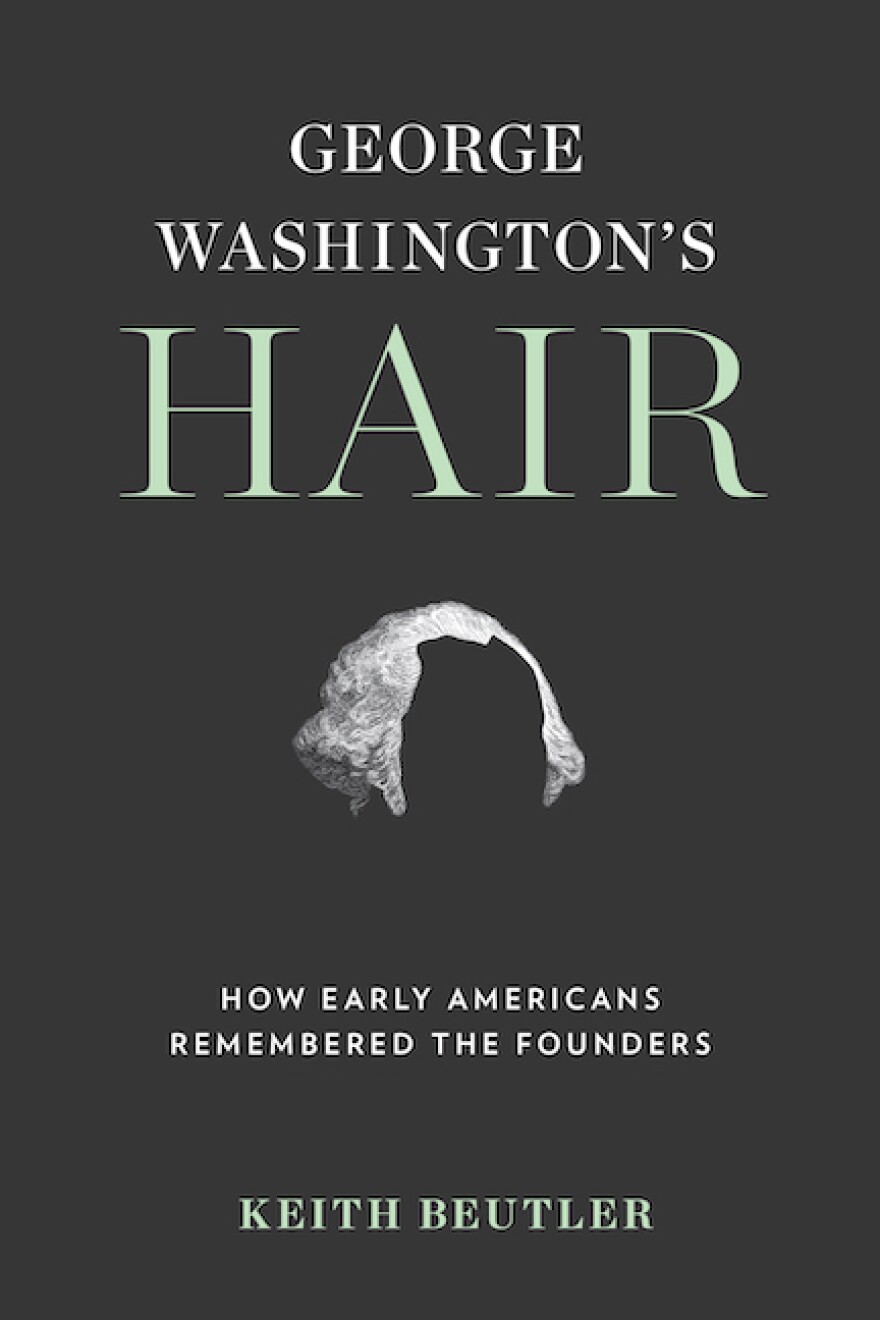Keith Beutler’s 2021 book, “George Washington’s Hair," begins with a look at an unusual artifact: a “Presidential Hair Book” compiled by a well-connected 19th-century collector. Peter Arrell Browne garnered locks of hair from every American president from Washington to James Buchanan and then gathered them in a tome now held at the Academy of Natural Sciences in Philadelphia.
Browne was far from alone. Collecting hair from deceased leaders, Beutler explained on Monday’s St. Louis on the Air, was a “surprisingly wide-scale phenomenon.”

In the case of Washington, claiming ownership of his hair wasn’t just the provenance of collectors. It was also a way of demonstrating one’s own belonging, a method of claiming a lineage with America’s founders.
In his book, Beutler tells the story of Hamet Achmet, a Black man who served in the Revolutionary War and proudly possessed not only Washington’s hair locks but his putative sword.
“He ended up getting a pension from the United States government,” Beutler explained. “And there's no question if you look at the details of the timing and everything else, that he was arguing, ‘I'm a founding father to you,’ that ‘I fought for this country, body and spirit every bit as much as George Washington.’”
It wasn’t just those wild and wacky 19th-century patriots who hoarded old hair. Beutler, a history professor at Missouri Baptist University, details how hair collections have continued to the present day (in fact, both Topps and Upper Deck rare-release baseball cards featuring Washington’s hair in this century).
Beutler has created a map showing where Washington’s hair is archived today. That includes two places in Missouri. There’s a lock with excellent provenance at the Missouri Historical Society Library & Research Center. With a slightly more dubious pedigree, Washington’s hair is claimed by Leila’s Hair Museum in Independence, Missouri, as well.
Beutler said he paid the museum — and the eponymous Leila — a visit. A former “hairdresser to the stars,” Leila Cohoon kept hair from the famous heads she trimmed and then began buying historical relics in the hair market (yes, there is a market for these things).
“She was in her element explaining all of this to me,” Beutler said.
The Americans claiming kinship with Washington go far beyond people trying to show they have a place in the republic. It also includes people trying to lay claim to adjacent greatness.
“Recently, a Google executive spent a lot of money to buy a lot of Washington's hair,” Beutler said. “It's still a thriving market. Believe it or not, every few months, a major example is sold somewhere.”
Photo courtesy of Flickr/Bernard Spragg. NZ
“St. Louis on the Air” brings you the stories of St. Louis and the people who live, work and create in our region. The show is hosted by Sarah Fenske and produced by Alex Heuer, Emily Woodbury and Kayla Drake. Jane Mather-Glass is our production assistant. The audio engineer is Aaron Doerr.







